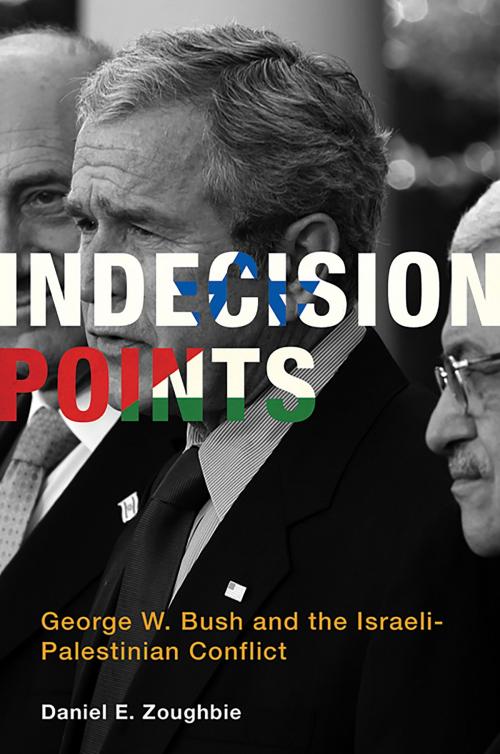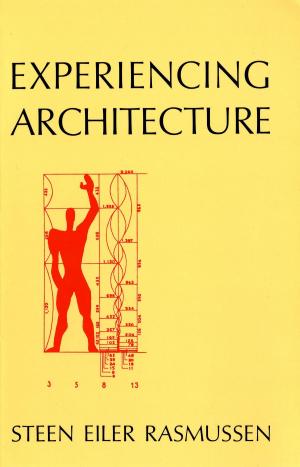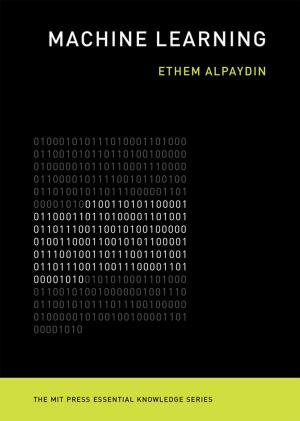Indecision Points
George W. Bush and the Israeli-Palestinian Conflict
Nonfiction, Social & Cultural Studies, Political Science, International, Government, History| Author: | Daniel E. Zoughbie | ISBN: | 9780262326193 |
| Publisher: | The MIT Press | Publication: | October 24, 2014 |
| Imprint: | The MIT Press | Language: | English |
| Author: | Daniel E. Zoughbie |
| ISBN: | 9780262326193 |
| Publisher: | The MIT Press |
| Publication: | October 24, 2014 |
| Imprint: | The MIT Press |
| Language: | English |
How a president who prided himself on his decisiveness vacillated between policy approaches in the Middle East.
Although George W. Bush memorably declared, “I'm the decider,” as president he was remarkably indecisive when it came to U.S. policy toward the Israeli-Palestinian conflict. His administration's policymaking featured an ongoing clash between moderate realists and conservative hard-liners inspired by right-wing religious ideas and a vision of democracy as cure-all. Riven by these competing agendas, the Bush administration vacillated between recognizing the Palestinian right to self-determination and embracing Israeli leaders who often chose war over negotiations. Through the years, the administration erratically adopted and discarded successive approaches to the Israeli-Palestinian peace process. The results of this irresolution included the stunning triumph of Hamas in the 2006 Palestinian elections, Israel's 2006 invasion of Lebanon, the 2008–2009 clash between Israel and Hamas in Gaza, and, in the end, virtually no diplomatic progress toward lasting peace.
In Indecision Points, Daniel Zoughbie examines the major assumptions underpinning U.S. foreign policy in the Middle East during the Bush years. Was there one policy or two? Was the Bush administration truly serious about peace? In a compelling account, Zoughbie offers original insights into these and other important questions. Drawing on the auhtor's own interviews with forty-five global leaders, including Condoleezza Rice, former Archbishop of Canterbury Rowan Williams, Kofi Annan, Colin Powell, Tom DeLay, Paul Wolfowitz, Douglas Feith, Richard Perle, Leon Panetta, Chuck Hagel, Shlomo Ben Ami, and Salam Fayyad, Indecision Points provides the first comprehensive history of the Bush administration's attempt to reshape political order in a “New Middle East.”
How a president who prided himself on his decisiveness vacillated between policy approaches in the Middle East.
Although George W. Bush memorably declared, “I'm the decider,” as president he was remarkably indecisive when it came to U.S. policy toward the Israeli-Palestinian conflict. His administration's policymaking featured an ongoing clash between moderate realists and conservative hard-liners inspired by right-wing religious ideas and a vision of democracy as cure-all. Riven by these competing agendas, the Bush administration vacillated between recognizing the Palestinian right to self-determination and embracing Israeli leaders who often chose war over negotiations. Through the years, the administration erratically adopted and discarded successive approaches to the Israeli-Palestinian peace process. The results of this irresolution included the stunning triumph of Hamas in the 2006 Palestinian elections, Israel's 2006 invasion of Lebanon, the 2008–2009 clash between Israel and Hamas in Gaza, and, in the end, virtually no diplomatic progress toward lasting peace.
In Indecision Points, Daniel Zoughbie examines the major assumptions underpinning U.S. foreign policy in the Middle East during the Bush years. Was there one policy or two? Was the Bush administration truly serious about peace? In a compelling account, Zoughbie offers original insights into these and other important questions. Drawing on the auhtor's own interviews with forty-five global leaders, including Condoleezza Rice, former Archbishop of Canterbury Rowan Williams, Kofi Annan, Colin Powell, Tom DeLay, Paul Wolfowitz, Douglas Feith, Richard Perle, Leon Panetta, Chuck Hagel, Shlomo Ben Ami, and Salam Fayyad, Indecision Points provides the first comprehensive history of the Bush administration's attempt to reshape political order in a “New Middle East.”















